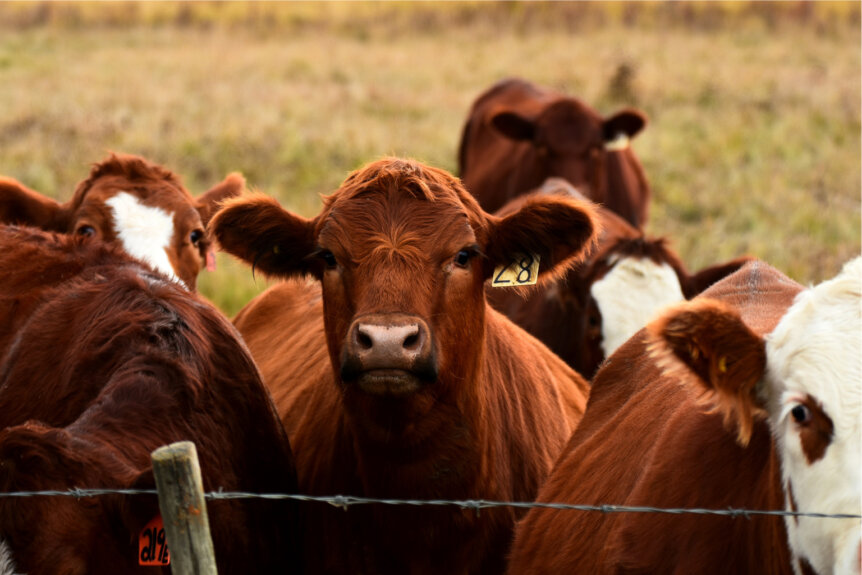Grazing leases for cattle in Illinois aren’t just a handshake deal anymore—especially with unpredictable weather patterns, rising land values, and increasing liability concerns. Whether you’re a landowner leasing out pasture or a cattle producer looking to lock in grazing rights, a written agreement can make or break your bottom line. In this blog, we will share the ultimate checklist to protect your land, livestock, and long-term interests. If you’re in Central Illinois and ready to get a customized cattle lease in place, call Rincker Law PLLC at (217) 774-1373 to get started.
Why Grazing Leases Matter in 2025
Pasture lease disputes are becoming more common in Illinois due to:
- Unclear maintenance responsibilities (e.g., who repairs the fences?)
- Verbal-only agreements that fall apart when ownership changes
- Disagreements over water access or drought impacts
- Unpaid rent or damage caused by livestock
Putting expectations in writing helps avoid misunderstandings and protects both parties—especially when friends, family members, or long-time neighbors are involved.
What to Include in an Illinois Grazing Lease: The Key Components
- Lease Term and Renewal
Establish clear start and end dates. Decide whether the lease will be seasonal (e.g., April to October), annual, or multi-year. Define renewal terms, such as automatic renewals or specific notice periods.
Tip: Avoid auto-renewals unless explicitly written and agreed upon. Specify how and when either party may terminate the lease.
- Land Description and Grazing Capacity
Be precise about the leased acreage. Use a legal description, parcel ID, or attach a survey or map. Also define grazing limits:
- Total head count or animal unit months (AUMs)
- Stocking rotation rules, if applicable
- Restrictions on overgrazing or required supplemental feed during droughts
This protects both land condition and animal welfare.
- Payment Terms and Structure
Specify the rent amount and payment method. Common options include:
- Per-head, per-month charges
- Flat seasonal rent
- Percentage of calf crop (less common)
Outline payment due dates, late fees, and whether partial refunds apply if cattle are removed early.
Some leases also include performance-based incentives, such as bonuses for effective pasture management or stocking rates.
- Fencing and Maintenance Responsibilities
Clarify who is responsible for:
- Fence repairs and installation
- Gate upkeep
- Road or trail maintenance, especially after heavy use or wet weather
If temporary electric fencing is used, the lease should require the lessee to restore the land to its prior condition upon termination.
- Water Access and Drought Planning
Detail the available water sources—ponds, wells, creeks, or rural water lines—and specify who is responsible for:
- Maintenance of water systems or tanks
- Hauling water in case of shortages
- Repair costs for wells or pipelines
Drought clauses are especially important. Consider including a renegotiation or early termination clause if natural water supplies become inadequate.
- Liability and Insurance
The lease should clearly outline liability in case of livestock-related damage or injury. Common protections include:
- Lessee must maintain general farm liability insurance
- Landowner named as an additional insured
- Mutual indemnification clauses
Also address who bears responsibility for animal injuries or deaths related to land conditions, fencing, or environmental hazards.
- Animal Health and Biosecurity
To reduce disease transmission or parasite risk, leases may include:
- Proof of vaccinations, deworming, or health inspections
- Quarantine requirements before cattle enter pasture
- Right to inspect or remove unhealthy animals
This is especially important when pastures are used by multiple herds over time.
- Breach and Early Termination Clauses
The lease should define what constitutes a breach (e.g., late payment, overstocking, property damage), along with:
- Cure periods (e.g., 15 to 30 days to fix the issue)
- Penalties for breach
- Early termination rights and any compensation due
Clear terms reduce the risk of future disputes or legal issues.
Optional Provisions to Consider
- Right of first refusal if the land is offered for sale
- Manure spreading, composting, or rotational use agreements
- Restrictions on subleasing or transferring lease rights
These additions can add flexibility while maintaining control.
Legal Note: Verbal Leases in Illinois Are Risky
Under Illinois law, verbal leases under one year are technically enforceable, but they are difficult to prove and even harder to enforce in court. A written lease provides clarity, protects both parties, and stands up under legal scrutiny.
Get Help Drafting or Reviewing Your Grazing Lease
Grazing leases for cattle in Illinois can provide mutual benefits for landowners and livestock producers, but only if both parties understand and agree to their responsibilities. From fencing to feed, liability to lease terms, it’s essential to put it in writing.
At Rincker Law PLLC, we understand Illinois agriculture, livestock operations, and land use law. We help farmers, ranchers, and landowners across Central Illinois protect their assets and long-term relationships with customized, legally sound agreements.
Call (217) 774-1373 today to schedule a consultation and ensure your grazing lease is built to last.

